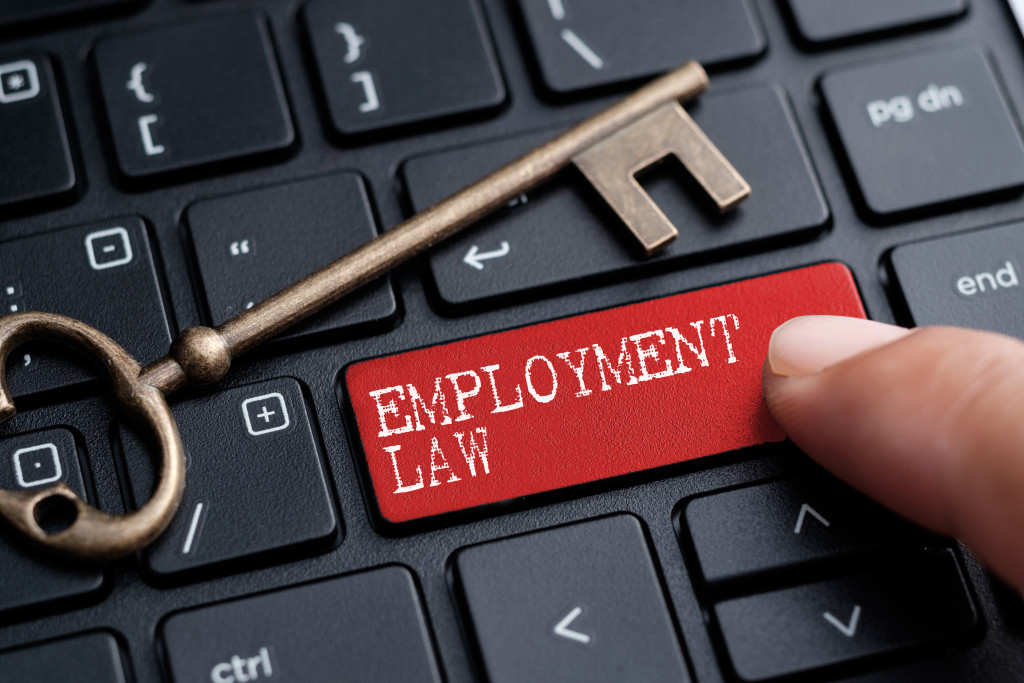- Know the key aspects of employment law and stay updated with any changes.
- Develop clear policies and ensure that all employees are informed about them.
- Keep accurate records of payroll, benefits, and employee hours worked.
- Seek legal advice when unsure of how to interpret employment law.
- Establish a complaint process for employees to raise their concerns.
As a business owner or entrepreneur, you know how important it is to ensure that your company complies with labor laws. The complexities of employment law can be daunting, but failure to follow the rules can carry heavy penalties and legal consequences.
Most employers are unaware of the laws they are responsible for, so it is essential to ensure that your human resources staff and managers are well-informed about labor laws and the responsibilities of employers. Here are five tips to ensure workplace compliance with labor law:
Know the Law
As an entrepreneur or business owner, it’s essential to understand the laws and regulations governing employment in your industry. Not only does this protect your business from potential legal issues, but it can also help you build a more prosperous and productive team. Every entrepreneur and business owner should know four key aspects of employment law.
Hiring Practices
One of the most critical aspects of employment law is ensuring that your hiring practices are fair and unbiased. This means making sure that your job descriptions and interview questions are free from discriminatory language and that you’re not making decisions based on a potential employee’s race, gender, ethnicity, religion, or sexual orientation.
Workplace Safety
Employers are responsible for providing a safe and healthy work environment for their employees. This includes taking practical steps to prevent accidents and injuries, providing training and protective equipment where necessary, and addressing any safety concerns that employees raise. Failure to do so can result in legal action, fines, and damage to your business’ reputation.
Payment and Benefits
Employment law also governs how and when you pay your employees and what benefits you’re legally required to offer. This includes minimum wage and overtime regulations and rules around sick leave, vacation time, and other benefits. Make sure you’re familiar with the relevant laws and regulations in your area and that you comply with them.
Discrimination and Harassment
Discrimination and harassment can lead to legal action, significant financial damages, and long-lasting harm to your business’ reputation. It’s your responsibility as an employer to ensure that your workplace is free of discrimination and harassment and to take prompt action if any incidents are reported.
Develop Clear Policies

Draft written policies that clearly outline your company’s expectations regarding issues such as pay, time off, and workplace safety. Ensure that all employees are given copies of these policies and trained on how to comply with them. Regularly review and update policies to stay current with new laws or changing business needs.
Keep Accurate Records
Maintaining accurate records is crucial to demonstrating compliance with labor laws. Ensure that all documents relating to payroll, benefits, and employee hours worked are up-to-date and accessible—train staff on maintaining records properly and performing regular audits to ensure accuracy.
Seek Legal Advice
If you are uncertain how to interpret specific laws or how they apply to your business, consider consulting with an employment law firm. This will help you ensure that your company is compliant and can save you time, money, and potential legal consequences in the future.
Employment law firms specialize in navigating the often complex and ever-changing landscape of employment laws, regulations, and policies, providing valuable guidance and representation to clients. Whether it’s wrongful termination, discrimination, harassment, or wage and hour disputes, employment law firms are equipped to handle various legal challenges.
Establish a Complaint Process
Creating a transparent system for employees to raise their complaints is an integral part of workplace compliance with labor laws. Ensure you have a protocol for handling complaints, such as filing paperwork or speaking directly to management. Doing so demonstrates your commitment to a safe and fair workplace and encourages open dialogue between you and your employees.
Conduct Regular Audits

Regular audits are essential to ensure your company complies with labor laws. This includes audits of your policies, records, and practices to identify any potential issues. Use the results of these audits to make adjustments as needed and establish corrective action plans where necessary.
Final Thoughts
Compliance with labor laws is vital for the success of any business. By developing clear policies, maintaining accurate records, and conducting regular audits, you can ensure that your company stays on the right side of the law. These tips will help you establish a solid foundation for compliance and keep your business running smoothly. Always remember that investing in compliance can save you from costly legal consequences in the long run.

